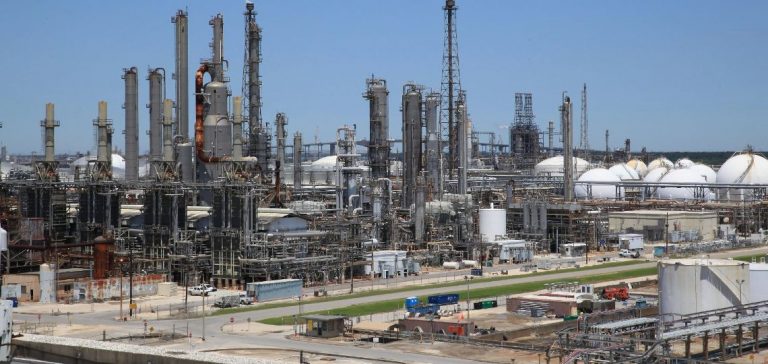A gas leak occurred on October 11, 2024, at the Deer Park refinery in Texas, owned by Petróleos Mexicanos (Pemex), resulting in the deaths of at least two individuals and injuring 35 others. The incident took place in the afternoon, immediately triggering emergency protocols. Local authorities advised residents to stay indoors and turn off their air conditioners to mitigate exposure to the toxic gas.
The Deer Park industrial complex, acquired by Pemex in early 2022 for $596 million, has previously been the site of several accidents, some of which were fatal. In a statement published on the social network X, the Deer Park City Hall confirmed that the 35 injured were employees of Pemex and added that an investigation is underway to determine the exact causes of the gas leak.
Immediate Response and Safety Measures
The local authorities in Deer Park responded swiftly to the incident by activating all necessary emergency response teams. Evacuation protocols were put into place to ensure the safety of refinery workers and nearby residents. The area surrounding the refinery was cordoned off to prevent unauthorized access and facilitate the investigation.
The Mexican Ministry of Foreign Affairs stated that the identities and nationalities of the victims have not yet been confirmed. This message underscores the ongoing nature of the investigation and the need for more information before authorities can release detailed reports on the casualties.
Historical Context of Pemex’s Safety Record
This recent accident adds to a troubling history of safety issues at Pemex facilities. Over the past few years, several incidents have been reported at various Pemex-operated sites in both the United States and Mexico. These incidents have raised concerns about the company’s safety protocols and the effectiveness of its emergency response strategies.
Experts suggest that the acquisition of the Deer Park refinery in 2022 may have played a role in the safety lapses that led to this tragic event. The integration of new management teams and operational procedures often presents challenges, and it is possible that gaps in training or oversight contributed to the failure to prevent the gas leak.
Economic and Environmental Implications
The acid gas leak not only has immediate human costs but also potential long-term economic and environmental impacts. Refinery accidents can lead to significant financial losses due to production shutdowns, repairs, and potential legal liabilities. Moreover, the release of toxic gases poses environmental risks, including air and soil contamination, which can have lasting effects on the local ecosystem.
Local businesses and residents are likely to experience disruptions as authorities conduct cleanup operations and assess the damage. The incident may also affect Pemex’s reputation, potentially influencing investor confidence and future business opportunities.
Ongoing Investigation and Future Prevention Measures
An investigation into the causes of the gas leak is currently underway, with Pemex and local authorities collaborating to identify the factors that led to the accident. Preliminary reports suggest that mechanical failure or human error could have been contributing factors, but a thorough analysis is required to ascertain the exact cause.
In response to the incident, Pemex has pledged to review and enhance its safety protocols to prevent future accidents. This includes increased training for employees, investment in better safety equipment, and more rigorous maintenance schedules for refinery equipment. The company aims to restore stakeholder confidence by demonstrating a commitment to safety and operational excellence.





















